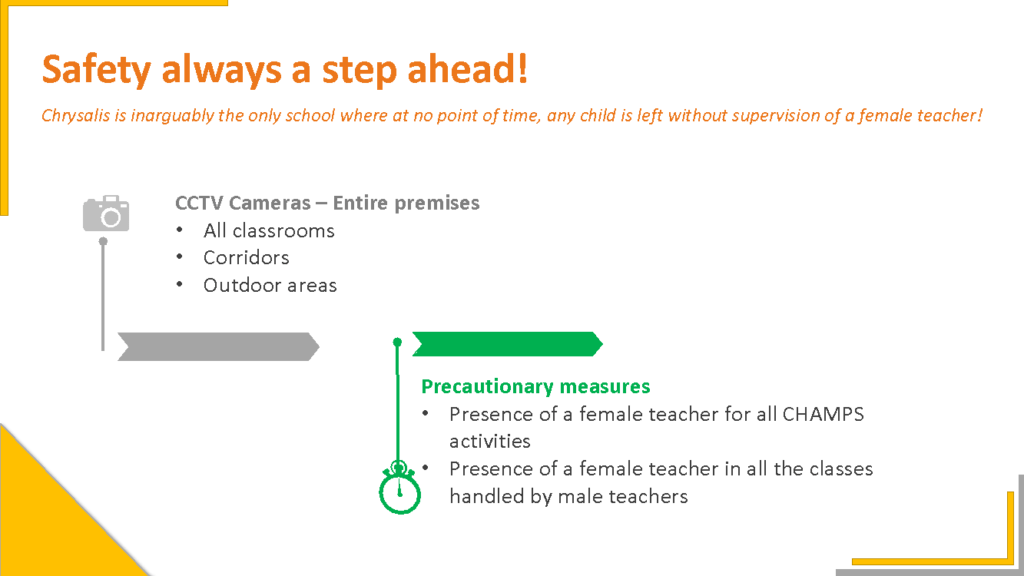The word “Myth” is derived from the Greek word “Mythos”, which means: story of the people. Mythology is simply the collection and study of myths and stories.
They can range from how the universe was created to cautionary tales about arrogance and greed. They teach you compassion, hard work, love, team work, patience, gratitude, selflessness and empathy.
These are stories that were once told around a campfire on a warm night, tales that were told to children to lull them to sleep, and epics that have been etched into our minds for centuries.
From stories about characters going on impossible quests to battle huge monsters, their internal struggles are always something we can relate to and understand. For example, not everyone would have a stepmother who told their father to exile them for 14 years, but we can all relate to the fact that (in the Ramayana) Ram had to obey his father and do his duties. We understand his hardship even though we never were, or will be in the very same position. We idolise Ram for his sense of duty, and empathise with his decision to obey his father.
Personally, my favourite myth is “The Wrath of Demeter”, one of the classics in Ovid’s “Metamorphoses”. It is a perfect example of what we are trying to reinforce in everyone due to our global issue of climate change – that Nature is not to be taken for granted. The story begins thus, with a highly arrogant king named Erisichthon, whose name literally translates to “Earth – Tearer”.
Now, Erisichthon hadn’t really been known for his apt decision making skills, which became apparent when one day, he decided to absolutely destroy the sacred grove of Demeter, the goddess of agriculture. This sacred grove was also where all the dryads (nature spirits) lived. At the very heart of this grove was a huge, ancient tree, covered in garlands and prayer tablets from devotees of Demeter.
Erisichthon’s army had already understood that the dryads would unleash their wrath on them at any moment for their deeds, and thus refused to cut down the tree. Not so for Erisichthon, as he promptly took an axe and started chopping down the tree, proudly declaring that he would cut down the tree even if it was Demeter herself! Hearing this, half of the army fled from the forest. Erisichthon was unmoved and continued chopping, at which time the tree started bleeding! His army tried to convince him to retreat, but he took this as a positive sign and continued. The soldiers ran away for their own good, some chased and eaten by vengeful dryads.
Right before the tree was fully chopped off at the centre, it spoke, and told the proud Erisichthon that she was, in fact, Demeter’s most beloved dryad, so loved that people had been offering her prayers and offerings for decades. She told Erisichthon he had made a grave mistake, and that Demeter would take her revenge.

Of course, Erisichthon was impassive to this dire warning, as he collected the wood and left triumphantly. The dryads who saw the events unfold quickly rushed to Demeter to fill her in.
Demeter ( who once stopped all life from flourishing for a full year, causing the death of millions, just because she couldn’t find her daughter ) wasn’t exactly pleased to know that her favourite dryad had been slayed. “Displeased” is far from it. She was raging. Her temper set the world ablaze. Drought and poverty pervaded the earth. Of course, Erisichthon took it as mere coincidence that his eradication of Demeter’s favourite nature spirit had anything to do with the goddess’ fury.
Exasperated, Demeter came up with an unnerving idea. She sent one of her nymphs to cold, barren Scythia, where Limos, the goddess of starvation, lived, to send her a message. Of course, Demeter could have gone there herself, but the two goddesses couldn’t physically be together due to how completely opposite they were. Despite this, they maintained a good friendship, and were dependent on one another.
As soon as she got the message,Limos gleamed with delight, and snuck into Erisichthon’s castle at night. She carried out what Demeter told her to do, and left.
The next day, Erisichthon woke up with burning hunger. His insides ached and his mouth watered. All day he either dreamed of food or ate it. But even that wasn’t enough to satisfy his insatiable hunger. He kept eating and eating, overworking his cooks, buying more and more food, until his treasury became completely empty and he was worth less than a peasant. Finally,his wealth had withered away, and all that was left was the burning hunger in his stomach. He yearned for food, dreamt of it, and thought of it in every waking moment of his life, until he couldn’t take it anymore. He consumed his own body out of ravenous hunger. Poetical justice in its true form, wouldn’t you say? Eriscithion hurt nature, and nature hurt him back, albeit in an unconventional way.
This particular myth teaches us the value of respecting nature, and of respecting others. Mother Nature is a scary yet beautiful force indeed.
If there’s one thing I absolutely love more than creation myths, it’s about the gods and how they interact with each other. For example – Thor and Loki from Norse Mythology! The infamous brother duo!
The most memorable myth I can remember is when, as a prank, Loki cut off Sif’s (Thor’s wife) hair right down from the roots. The God of Mischief may have counted it as another one of his silly pranks, but Sif did not. Her luscious golden head was the treasure of both her and her husband.

Thor was so infuriated with Loki that he threatened to break every single bone in his body (and trust me, he could). Quick wittedly, Loki assured Thor that he’d gift Sif a golden wig that far outshone her own golden locks.
He went to the dwarves, the sons of Ivaldi, the greatest craftsmen. They made stunning golden hair, each hair spun from magical gold. They treasured their two most difficult inventions – A spear named and a foldable boat that could fit into your pocket when not in use.
The God of Mischief, overjoyed at the sight of the completed golden locks, and always down for some trouble, made a bet with the dwarf Brokke, saying that he couldn’t possibly make artefacts more stunning, for” that would require skill” None too pleased at this scathing remark, the wager was decided upon as Loki’s head.
With the stakes needlessly elevated, the dwarf got to work. Of course, Loki started cheating from the get – go, turning into a stinging fly to distract Brokke while he worked the bellows. Brokke remained impassive for the first two artefacts, lost his calm at the 3rd one and wasted some precious metal, but got right on track. With the artefacts completed, Loki and Brokke went to Asgard to present them. Sif and Thor were quite pleased with the hair, Odin was overjoyed to have a new spear and Freyr loved the collapsible boat.
Then, they unveiled the three bonus, “more stunning”, artefacts. The first was a golden boar named Gullinbirsti, that could run over water, air, and glow in the dark.
The second was a magic golden ring for Odin called Draupnir which produced 8 more identical copies of itself every nine days.
The third was a hammer presented to Thor called Mjolnir, which never missed, always returned to its owner and always hit its mark. It had a slightly short handle, but despite this Thor was immensely happy with his new weapon. Everyone agreed that Thor’s gift was the most supreme of all. Loki, realising he lost the bet, ran away. However, Thor caught up with him in an instant and was more than happy to present him to Brokke , who was standing over him triumphantly with a huge axe. In a last – ditch attempt, Loki cried out “ Well, I said you could have my head, but I never said anything about my neck!”
This barely bothered the dwarf, but they did manage a compromise. Loki kept his head, but they sewed his mouth shut. That was the quietest, most peaceful afternoon Asgard had seen in a long time.
Until, of course, Loki undid the threads by evening.
This story is my absolute favourite in all of Norse Mythology. Not for any moral message it tries to convey, but for its general hilarity. Whenever you’re feeling down, read about Loki’s shenanigans. I promise they’ll make your day better!
Isn’t it amazing how we humans made gods, stories, adventures, epics – just out of our minds? Mythology really shows us all what we’re capable of, what our minds are capable of! It’s so humbling to think that once someone looked at a solar eclipse and thought that a snake ate the sun, or that the glaciers on top of volcanoes (glaciers and snow are formed because of the high elevation of these mountains) was caused because the Volcano goddess lost a lava – sledding competition.
(In Hawaiian Mythology, Pele the volcano goddess was competing in a game of lava – sledding with Poli’ahu, goddess of snow.
The two goddesses were competing to see who was the fastest and when Poli’ahu got declared as the winner, Pele unleashed her temper, causing an earthquake.
Before she could start bursting the volcano though, the three goddesses Lilinoe, goddess of mist, Waiau, goddess of the underground reservoir, and Ka – Houpo – O – Kane, goddess of the springs, along with Poli’ahu, worked together to suppress her. I like this tale as it presents fire and snow as each other’s antithesis. We usually think of fire and rain as each other’s antithesis, but in Hawaiian mythology, Pele marries the god of Rain.)
Our brains hold a plethora of possibilities. We can imagine as brightly, think as deeply and learn as swiftly as we want, if only we try. These stories may be as adventurous and monumental as they like, but at their core they are values – courage, happiness, teamwork, patience, selflessness, etc.There is more we can do, more we can learn, more we can imagine. All we have to do is believe.
For further exploration of educational content and insights, delve into the resources available on Chrysalis High.


